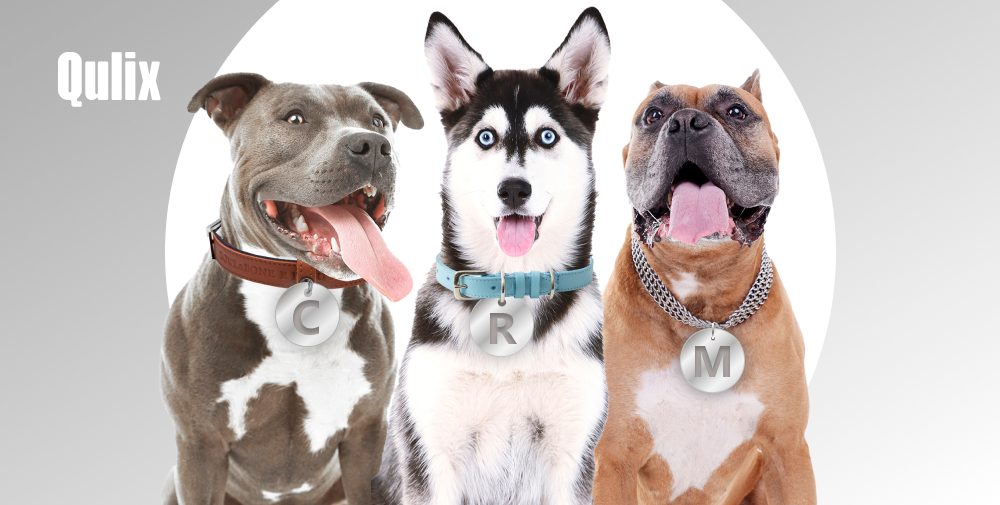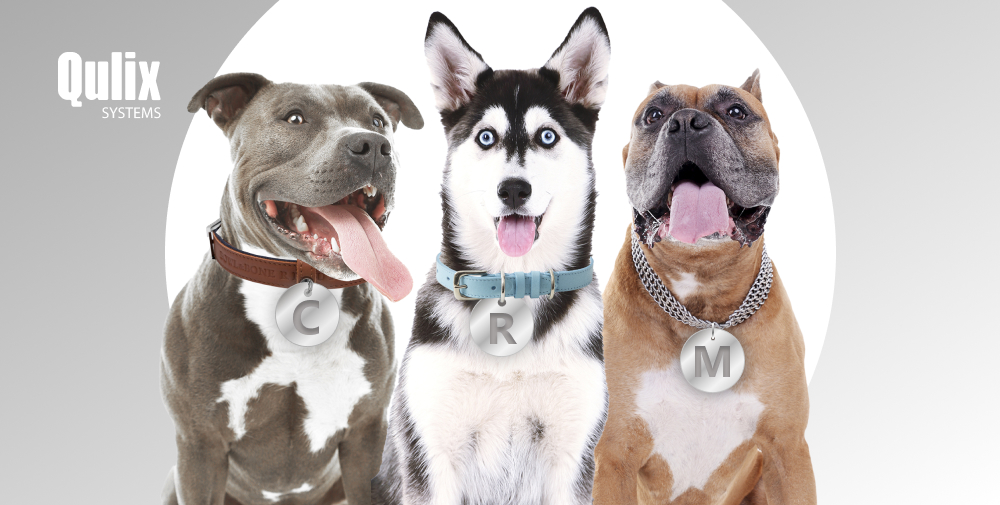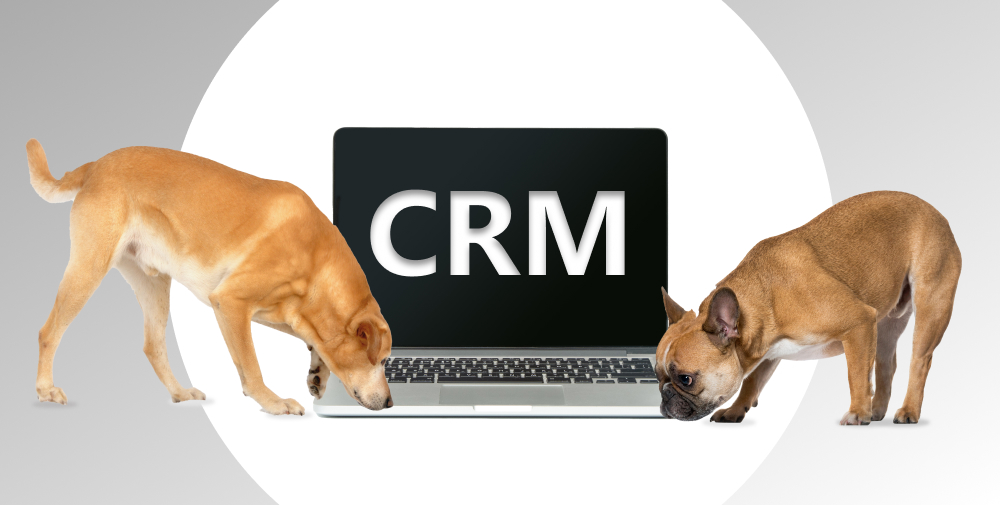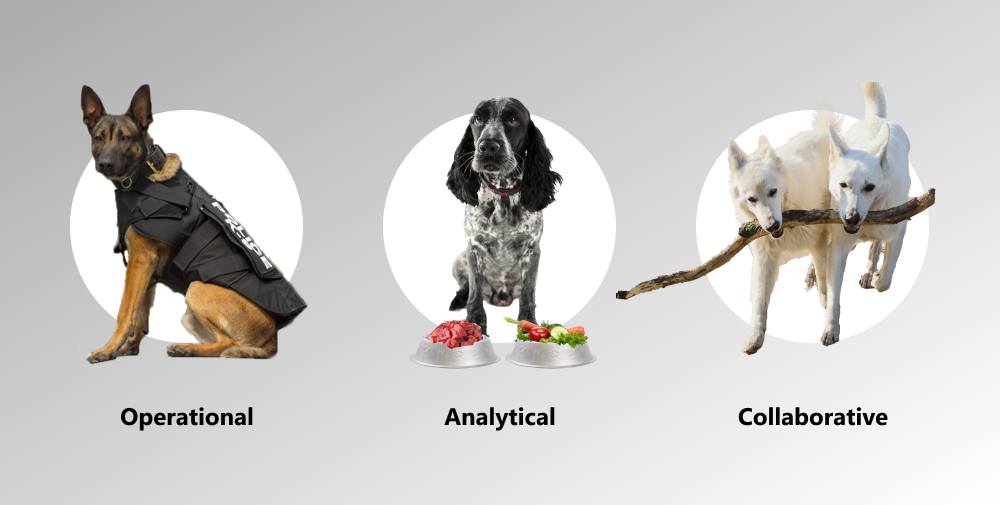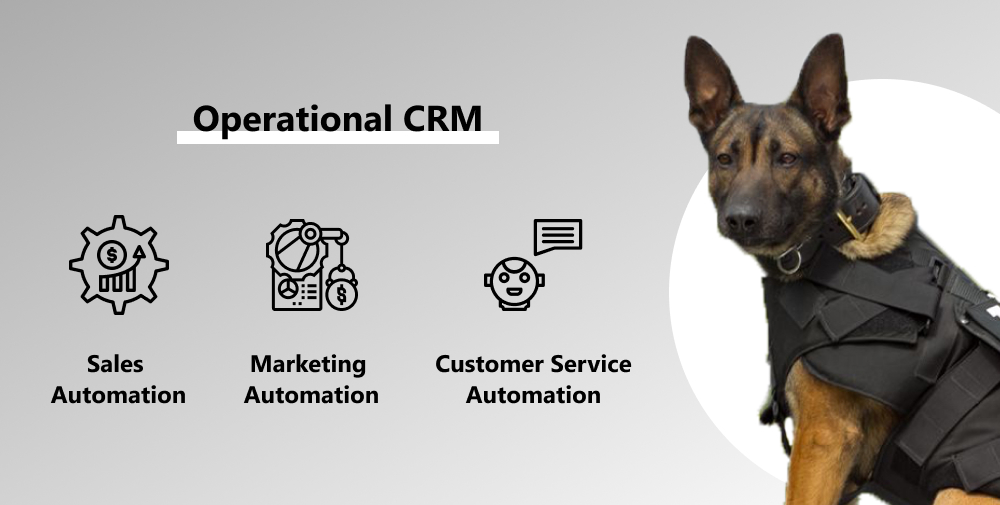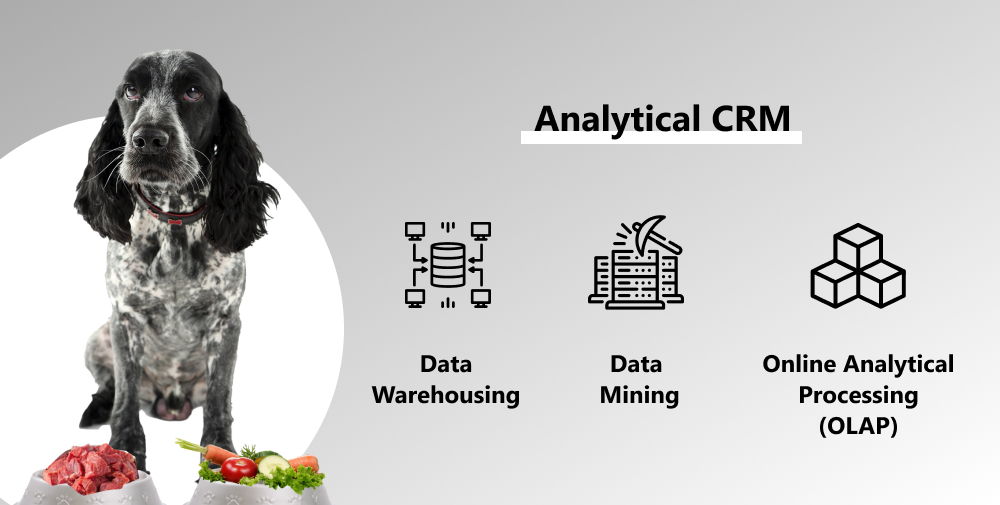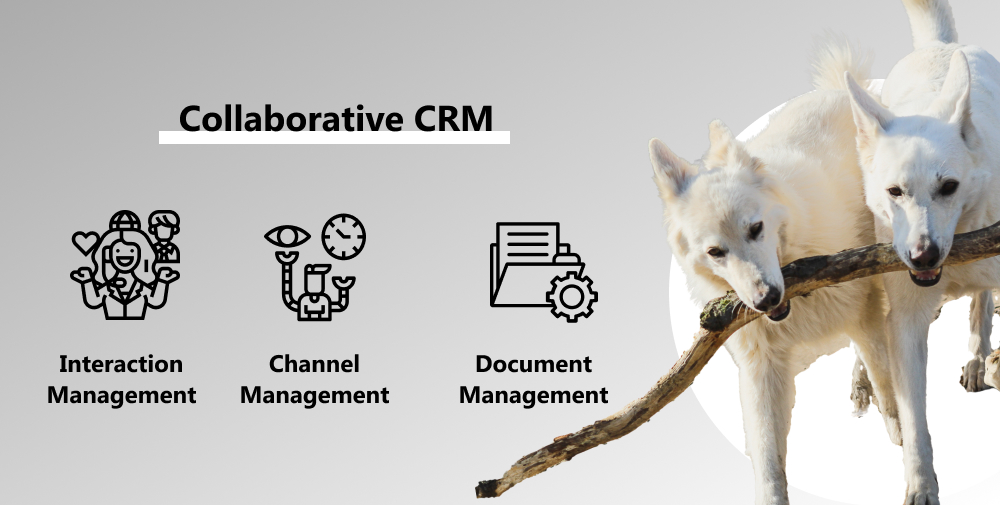There is no business without customers, which is why it is essential to build a relationship with them and consistently maintain that relationship by creating an ever-improving experience. Moreover, with the changes brought into the world during 2023, it is now especially critical to give your customers a personalized touch to retain them. This, in combination with the ever-growing competition, has made it even more challenging for firms to stay competitive. Thankfully, there is a solution that allows you to collect, store, and analyze customer data, forecast trends and improve your customer management model — a Customer Relationship Management (CRM) software system. However, as there are several types of CRM systems, it is important to first understand the benefits each type brings.
written by:
Aliaksandra Tsikhanovich
There is no business without customers, which is why it is essential to build a relationship with them and consistently maintain that relationship by creating an ever-improving experience. Moreover, with the changes brought into the world during 2020, it is now especially critical to give your customers a personalized touch to retain them. This, in combination with the ever-growing competition, has made it even more challenging for the firms to stay competitive. Thankfully, there is a solution that allows you to collect, store, and analyze customer data, forecast trends and improve your customer management model — a Customer Relationship Management (CRM) software system. However, as there are several types of CRM systems, it is important to first understand the benefits each type brings.
Contents
CRM or Not CRM?
As businesses expand, maintaining a personalized approach to every customer becomes increasingly challenging, regardless of the industry. This is where the importance of Customer Relationship Management (CRM) systems becomes evident. Consider this scenario: an overwhelming influx of leads inundates your business, risking the loss of a significant portion of your clientele. A well-designed CRM system steps in to efficiently sort and prioritize these leads, ensuring your sales team can process them promptly and effectively.
Furthermore, inadequate customer support structures or inefficient arrangements can lead to client attrition. For instance, if you find yourself spending more time addressing complaints than fulfilling your clients' expectations, you risk losing their loyalty. To meet and exceed expectations, it's imperative to comprehend customers' behaviors and preferences. This entails the meticulous storage and analysis of historical customer data, leveraging this information to anticipate trends and patterns, and taking proactive steps to enhance the overall customer experience.
Achieving these objectives necessitates the utilization of various types of CRM software tailored to specific business requirements and objectives.
The CRM software industry is expanding by the day, and, according to Statista, revenue in this sector had to reach $69.13bn. The annual growth rate (CAGR 2022-2027) was forecast to hit 11.72%, resulting in a market volume of $120.30bn by 2027. The reports also show that 65% of companies start using a CRM within their first five years in business. Consequently, 91% of businesses with 10 or more employees use CRM systems in general. This data isn’t surprising: CRM systems bring a lot of benefits to companies because they allow to stay in touch with current and potential clients and improve customer experience. As a result, you get the increased retention rate and business growth.
What Is a CRM Software System?
Customer Relationship Management software is a software product that manages all elements of the interaction between a business and its existing and prospective customers. CRM technology collects data such as contact information, communication and purchasing history, lead scoring, recent news, and more, from multiple channels like the company’s website, social media channels, customer reviews, support logs, and others.
Moreover, beyond storing data, different types of CRM software also provide data analysis tools that allow tracking sales, marketing, customer service efficiency, and customer satisfaction rates. The company can then use this data not only to improve its products and services and better understand customers’ needs but also to adjust its marketing campaigns and generate higher sales.
Furthermore, while the CRM system has huge benefits for bigger companies, it is especially crucial for small businesses, as their survival directly depends on the ability to gain and retain new customers.
3 Types of CRM: Operational, Analytical, Collaborative
CRM software solutions often fall into one of three main categories: operational, analytical, and collaborative. Each category represents its own set of common features and capabilities and meets different business needs. Even though many systems combine elements of all three types of CRM software, it is still important to get an overview and clear understanding of what each type does and what kind of needs they fit best to then be able to find software that fits your business specifically.
1. Operational CRM
The main purpose of operational CRM is to facilitate operations surrounding customers by covering three core areas — marketing, sales, and service. It builds a framework for a holistic customer approach and support that is focused on automation and business process improvement, by giving a complete overview of each customer’s interaction with your business. Meanwhile, automation also helps to make employees more efficient and lets them focus more on the tasks requiring a human touch.
Main Features of Operational CRM
- Sales Automation. Creating records for new contacts, scheduling meetings, assigning leads, creating and distributing sales reports and many other features get automated with this type of CRM, freeing up the sales team from routine tasks. Moreover, it scores and prioritizes the leads, giving visibility on which leads are top priority and most worth pursuing.
- Marketing Automation. While marketing software can be a standalone solution, it can also be included in the CRM system, taking a share of work from the marketers’ full plate and making the process more efficient, mainly through event-marketing automation. It creates complex email campaign sequences such as welcome emails, targeted sales, re-engagement campaigns, and others triggered by new lead events and customer reactions.
- Customer Service Automation. An operational CRM system provides customers with self-service options such as scheduling appointments and autopay and automated support such as chatbots and help centers, creating a faster and more efficient experience for them.
As a result, this technology provides companies with the benefit of gaining insights to boost sales and revenues, as well as to create better-targeted marketing campaigns and provide more timely and efficient customer service. It connects all three customer-facing departments in order to gain maximum results. Generally speaking, operational CRM is advantageous for any kind of business, and particularly for organizations with a heavy customer focus.
2. Analytical CRM
While operational CRM facilitates forefront business activities, an analytical customer management system works exclusively with all the collected information to provide relevant insights for making smart business decisions. It is the key to turning the vast amounts of collected data into something specific and actionable, either it is providing better service, finding new ways to engage potential customers with your brand, or optimizing the current sales process and marketing strategies.
Main Features of Analytical CRM
- Data Warehousing. In simple words, it is the integration, organization, and storage of all data collected from different sources in one place. Once it is done, it becomes possible to use this data, run reports and analysis.
- Data Mining. Using statistical analysis, data mining finds relationships and patterns in the stored raw data. Separating customers into segments based on all sorts of factors from age and education to purchase history and how they found your brand, allows businesses to target the right people with the right kind of messaging. By analyzing customer touchpoints, the system also gives a clear picture of which marketing efforts have the most impact and bring the most revenue and which ones fail or have low ROI.
- Online Analytical Processing (OLAP). OLAP is the part of analytical CRM that allows making deliberate business decisions. This powerful technology draws a picture of how all little pieces of data fit together, what works and what doesn’t, giving the knowledge needed for taking an action. Most importantly, it runs various “what if” scenarios and provides businesses with forecasts and predictions, which is a key functionality for making smart data-driven decisions.
To summarize, the analytical CRM system helps companies to identify their weak spots and fix them in an intelligent way. It conducts a behind-the-scene analysis that is impossible to make manually, results of which are presented in a comprehensible and logical way, empowering to make rational decisions based on facts instead of guesses. Analytical CRMs work best for more mature companies, who already have big amounts of data to analyze. Moreover, the more data company has, the more important it is to consider using this type of software.
3. Collaborative (or Strategic) CRM
Techopedia defines this type of CRM (which sometimes is also referred to as strategic CRM) as follows:
“...CRM approach in which the customer interaction data of an organization is integrated and synchronously shared to enhance customer satisfaction and loyalty for maximized profitability and revenue.”
It means this type of CRM is focused on making communication and collaboration across customer-focused departments (sales, marketing, and technical support) more efficient and consistent to ensure a higher quality customer experience and increased customer loyalty. Collaborative CRM covers the same scope as Operational CRM does, however, it mostly focuses on customer retention and satisfaction and not on new customer acquisition.
Main Features of Collaborative CRM:
- Interaction Management. The focus of this function is on interactions between business and its customers, as well as breaking the silos between different departments. Similar to operational CRM, collaborative CRM tracks every interaction and, then, every customer-facing team has access and clear visibility of the logs of these interactions together with team notes, which keeps everyone aligned and up-to-date. Using this information shared across teams, businesses can efficiently adjust their campaigns, improve their products and significantly enhance communication quality with their customers.
- Channel Management. There are various channels customers use to connect to the businesses — via phone, via email, and on social media to name a few. In fact, according to recent research, 67% of users use social media to interact with businesses. It is important to be present and ready to meet the customer on whichever platform they may prefer, and this is what channel management is for. For larger companies, the concept of this feature can extend to partner relationship management (PRM) to manage collaborations with various partners and vendors.
- Document Management. Firstly, collaborative CRM keeps all customer-related documentation organized and easily-accessible when necessary. Furthermore, it helps to create troubleshooting guides, FAQs, and other materials for self-service customer support, which improves customer quality as well as decreases customer support interactions costs.
A collaborative CRM system helps businesses to improve product/service quality and provide a more personalized and consistent experience to the customers through keeping all related teams aligned. This type of CRM is especially suitable for businesses that need to track customers across multiple platforms, as well as for those, the success of which highly depends on how well different departments collaborate.
Final Thought
Whether it is an operational, analytical, or collaborative CRM software system, each contributes to a more efficient, engaging, and profitable customer management strategy. However, it is rarely the case that business uses a solution solely focused on one of these main types of CRM. In reality, most modern CRM systems combine capabilities of all three and even include a huge range of extra features. Meanwhile, each software still specializes more on one of the types of CRM, which is why it is important to understand what they stand for and which one your business requires a stronger focus on given the specific needs.
For more on our software development expertise and the options we may offer you, contact us directly or visit our website.

Contacts
Feel free to get in touch with us! Use this contact form for an ASAP response.
Call us at +44 151 528 8015
E-mail us at request@qulix.com

